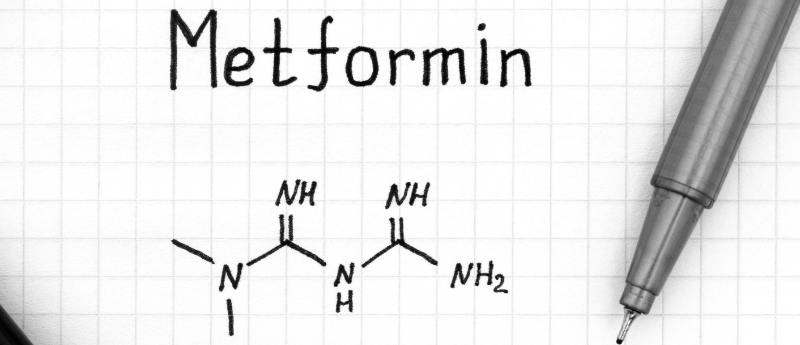
BioTechniques News
Jade Parker

By illuminating the mechanism underlying metformin’s link to weight loss, researchers could have identified a candidate for novel weight loss pharmaceuticals.
Recent research from Stanford University and Harvard Medical School (both MA, USA) has used a combination of mouse models, human blood samples and statistical analysis to reveal the mechanism behind the weight loss associated with Metformin, a drug prescribed to regulate blood sugar levels in people with type 2 diabetes. The identification of the exercise-associated molecule at the center of this mechanism, Lac-Phe, could help optimize weight-loss strategies.
The association between metformin and weight loss has been established for some time; however, the mechanism underlying it has remained a mystery. An initial study by Mark Benson (Harvard Medical School) and Jonathan Long (Stanford University) in 2022, which was searching for the molecules responsible for the suppression of hunger following intense exercise, uncovered Lac-Phe, a combination of lactate and phenylalanine. Furthermore, they demonstrated that the production of Lac-Phe was directly related to the production of the exercise waste product lactate.
Having identified this molecule, the team realized that as Metformin acts by breaking down glucose, it too stimulates the production of lactate, leading them to examine the potential relationship between Lac-Phe and metformin.
To conduct these investigations, the team used three approaches. The first involved the use of mouse models, testing the blood of obese mice given metformin to evaluate the levels Lac-Phe in their blood before examining the impact of prescribing metformin to a cohort of mice, which had been genetically manipulated to prevent the biosynthesis of Lac-Phe. The second approach involved the analysis of blood samples taken from type 2 diabetes patients prior to the prescription of metformin and then again 12 weeks later. The final approach involved a statistical analysis of results from 79 participants in an atherosclerosis study that lasted several years and involved the prescription of metformin.
 RalA: the culprit for mitochondrial dysfunction in obesity
RalA: the culprit for mitochondrial dysfunction in obesity
Researchers have highlighted that eating a high-fat diet dismantles mitochondria via the activation of a single molecule termed RalA.
In the mouse model studies it was observed that mice given metformin had elevated levels of Lac-Phe, in ate less and lost approximately 2g of their body weight in 9 days. When the lac-phe biosynthesis pathway was ablated in the mice these results were not repeated, indicating the importance of the molecule in this effect. The human blood analyses also revealed a significant rise in Lac-Phe levels following the administration of metformin. The statistical analysis further supported these findings, showing higher levels of Lac-Phe in those who had been taking metformin for the duration of the study.
Taken together, the team were able to confirm that metformin stimulates the synthesis of Lac-Phe by inhibiting complex I, increasing glycolytic flux and intracellular lactate mass action. Commenting on the results, Long revealed that: “The magnitude of effect of metformin on Lac-Phe production in mice was as great as or greater than what we previously observed with exercise. If you give a mouse metformin at levels comparable to what we prescribe for humans, their Lac-Phe levels go through the roof and stay high for many hours.”
Recent breakthroughs in pharmaceutical interventions for obesity, in the form of the semaglutide drug Ozempic have proven commercially successful, but the team note that this drug is administered via injections. Metformin, meanwhile, is orally administered leading Long to hope, “there may be a way to optimize oral medications to affect these hunger and energy balance pathways to control body weight, cholesterol and blood pressure. I think what we’re seeing now is just the beginning of new types of weight loss drugs.”
The post Lac-Phe: the mechanism behind metformin’s role in weight loss appeared first on BioTechniques.
Powered by WPeMatico
